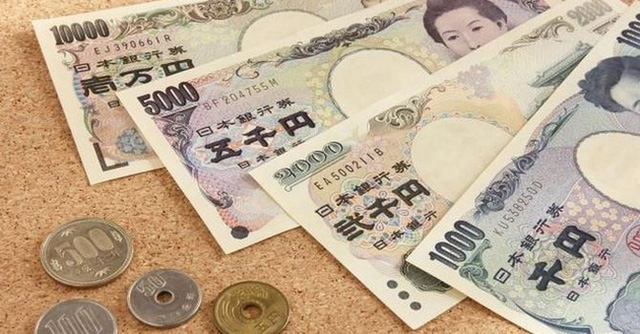New clothes do not dare to buy, looking at the electricity bill is enough to cry
A “weaker” yen has long been seen as a boon to Japan’s economy, helping to boost the country’s export system and bring in wealth. However, an “anemic” coin is now more of a curse than a blessing.
Unlike in the past, a cheaper currency is no longer able to boost exports as Japanese companies have largely moved production abroad. According to the Bank of Japan (BOJ), Japan’s import price index, which is based on corporate transactions, has increased by about 30% on the year as natural resource prices have both risen, while the index Export prices only increased by 10%. Things have changed and the effects of a “weak” yen have become more apparent than ever, especially for households.

The value of the yen fell, causing the Japanese people to struggle.
Fuel prices increase, leading to monthly electricity bills
Previously, gasoline prices had shown signs of a slight decrease from the highest level since the impact of the war between Russia and Ukraine. However, the strong weakening of the yen is likely to continue to increase pressure on imported fuel costs in the near term. The yen has rapidly depreciated in value after 7 years.
Energy importers in Japan are warning that a falling yen could exacerbate fuel costs, hurt their own profits and raise prices for consumers.
Monthly electricity bills in Japan also escalated
Japanese Finance Minister Shunichi Suzuki stressed that it was urgent to examine whether a “weaker” yen would harm the economy. He pointed out that the government is very concerned about the currency’s recent slide.
Japan’s electricity bills are steadily rising monthly as higher fuel costs and the weakening yen are making it worse than ever. Crude oil prices in Japanese yen have almost doubled year-on-year, while fuel prices in US dollars are up about 75% year-on-year.
The Japanese are struggling because even the price of clothes has increased
Japanese consumers, who tend to use a lot of imported products, have become more sensitive to the unbelievably high prices caused by the weakening yen. Clothing prices are also increasing sharply.
According to the consumer price index compiled by the Ministry of Home Affairs, garment prices have increased by 9% in the past 10 years. The price of women’s clothing has increased by 13%, of which the price of a dress has increased by 17%. Currency fluctuations strongly affect clothing prices in Japan as 98% of clothing is imported.
Clothing is not the only item that accounts for a large proportion of consumption. Accordingly, the price of air conditioners, 60% of which is imported, has increased by 21% over the past decade, nearly four times the general inflation rate for all other commodities.

The currency devaluation forced Japanese people to change their lifestyle.
According to the Bank of Japan, households are becoming more and more dependent on imports. Imports now account for 34% of consumer durable goods, such as home appliances and furniture, both up 1.7 times from a decade earlier. The ratio for food, clothing and other consumer goods is 1.4 times higher.
At a time of recession with low wages, rising prices for basic necessities put a strain on household budgets. The Engel coefficient, which measures the share of household budgets spent on food, topped 25% in the first 11 months of 2021 in Japan, the highest rate since the mid-1980s.
The decline in the purchasing power of Japanese consumers is also evident when compared with the amount of labor required to buy the same product in other countries. MoneySuperMarket, a UK price comparison website, calculated the cost of products by the number of working hours needed to purchase them, realizing that Japanese consumers had to work 72 hours to buy an Apple iPhone 13 , while in Australia and Demark it takes only 60 hours. Although the price of this product is higher in those countries.
The Japanese government has tried to protect its export industry by keeping the value of the yen low and controlling wage growth, but this strategy has failed to work, said an industry researcher. fruit. To maintain the standard of living, Japan needs to deregulation and focus on job training to promote industries that are able to develop high-value products and generate profits regardless of exchange rate. exchange rate changes.
Law & Readers
at Blogtuan.info – Source: cafebiz.vn – Read the original article here



